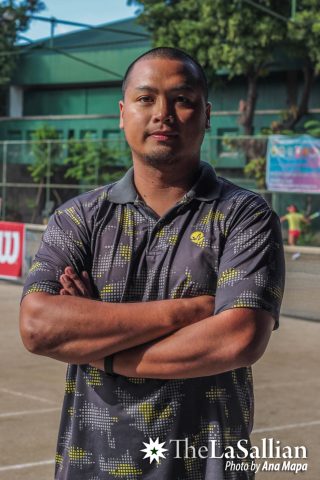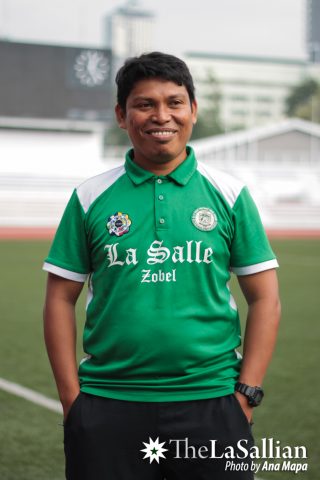Getting a sports team on the pitch, the court, the mats, or the playing field takes a lot of effort. It takes even more to keep a team competitive. The journey leading up to the starting line, along with the grueling fight to the top, requires quite a production—with many significant individuals taking on distinct roles.
Frequently, it is those in leading roles who are most often highlighted. The spotlight tends to focus on the team captains, the coaches, and the star players. Perhaps more subtly, there are several other facets that play major roles in the way a team is developed, trained, and maintained. The hardworking assistant coaches of the sporting world may not appear in the limelight as much as other sports personnel, but their contribution to the development of the team cannot be discounted.

Realities of the role
The role of an assistant coach tends to be overlooked. Often, they are viewed simply as the stewards of the head coach, when in truth, this does not encapsulate the realities that come with taking on such a vital role. Working hand-in-hand with the head coach entails much diligence, as the entire coaching staff tries to move together in pursuing their goals.
Former DLSU Green Archer JR Aquino did not hesitate to return to Taft when head coach Cholo Villanueva, who was also his former teammate, offered him the opportunity to help guide the Lady Archers. As he recounts, “I really want to coach; I really love basketball. [I] quit my corporate job at [that] time, [and] we had a family business, so [simultaneously] I was helping the family business and coaching.”
Accepting the position as assistant coach meant supporting the leadership of the head coach to work toward the betterment of the entire team. Aquino understands this responsibility well, as he discusses, “I have to implement what coach Cholo wants for his system…follow what [he] wants [for the] big picture. I know what he wants for the team, so I just support him there.”
Assistant coach Pereme Alina of the Green Tennisters also understands that collaborating with the head coach is critical to fostering a harmonic team dynamic. He explains that in working with the head coach of the team, his biggest tool is communication. “If we don’t have good communication, if we’re giving different suggestions, ‘yung bata ang naguguluhan. So before we tell them, [we make] sure that we’re on the same track,” he shares.
(The players would be confused.)

However, assistant coaches are not only expected to work and support the head coach’s visions. These mentors are usually entrusted with specialized duties and responsibilities, which are in line with the team’s overall goals and boost their performances.
Every player in a sport has their own specialty—a role they take on that brings out the best of their abilities. The same is true for assistant coaches. Their specialization in specific skills contributes a lot to the team, as it builds the foundations and refines the intricacies of the players’ performances. Green Booters assistant coach Manji Marcellana, for one, whose specialty is in defending, imparts his expertise in this particular aspect of the sport to help the Taft-based squad pursue their goals.
Assistant coaches also understand that it is important to build and develop athletes further by concentrating on each player’s own skill sets and tackling their respective strengths and weaknesses. As a tennis coach, Alina works with individual team members with differing skills. For this year, he says that he is focusing on helping players build on their individual playing styles, “We have different kinds of players that have different kinds of specialties, so we focus on that.”
Sowing seeds, reaping rewards
Although the main job of any assistant coach is to help the players enhance their skills and performances in their respective sports, it is equally important for an assistant coach to build rapport within the team. Aquino does his best to get to know his players on a deeper level through conversations and time spent together off the court, that way “you can build a relationship, and from that relationship, you will build trust.”
Marcellana explains that although he focuses on the personal side of his relationships with his athletes during training and in games, there are certain boundaries that need to exist. “In training we’re very strict para matuto [sila], pero outside sa field, we’re [friends],” he explains. The football coach also adds that being an encouraging mentor is key in ensuring that the players remain motivated to give their best and keep on improving.
(We’re very strict so that they learn and improve.)

With the work and the play that come with being assistant coaches, the three Lasallian mentors also have to overcome different kinds of hardships, recognizing their responsibility in shaping the student-athletes they coach.
Instilling a “competitive” and “winning attitude” in the players, Aquino believes, is essential both in game and in life. In molding his team members, he is not just building athletes—he is also building members of society. “You want them to be a better person outside the school,” he says. “We want them to implement the Lasallian values, so after their playing years here, they have those values that we want them to have to be a better citizen of our society.”
Through the highs and lows that these coaches ride through in their hard work, they still find joy through it all. For Marcellana, the most rewarding part of being an assistant coach is watching his players attain success—such as the team’s aim to make it to the UAAP Season 81 men’s football semi-finals. This was a goal that the Green Booters not only achieved but surpassed, as they went a step further by reaching the finals stage that year.
For these mentors, reaping the rewards of their hard work is not about putting themselves in the spotlight but rather bearing witness to their players’ success—in their sport, their academics, their personal development, and their life after school. Aquino finds joy in seeing his players finishing their studies and graduating, as he expresses, “They always look back and thank us for what we have done for them. It’s the most rewarding part.”
